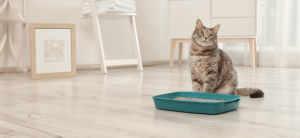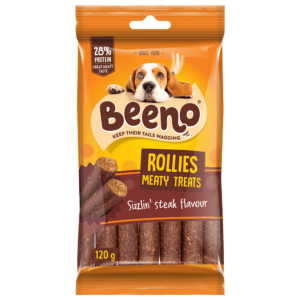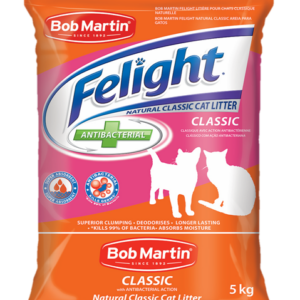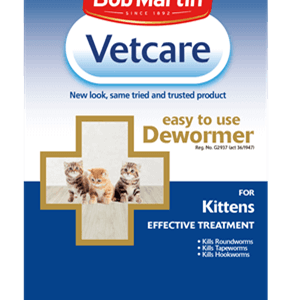It’s not always obvious that your pet has worms which is where Bob Martin comes to help.
It’s not always obvious that your pet has worms, and there is no way of stopping pets from getting them which is why regular treatment is so important.
Are there any indicators that my pet may have worms?
With worms being too small to see its difficult to tell if your pet has a worm infestation. Here’s a few indicators:
- Younger animals may have a pot belly and start to lose weight if they have roundworms.
- Sometimes you can see tapeworm segments, which look like grains of rice, around their bottom.
- Lungworm symptoms include a moist cough, weight loss, vomiting, diarrhoea, reduced appetite, nose bleeds or bleeding persistently from a small wound.
What are the different types of worms?
Roundworms Roundworms are spread by your pet eating an infected egg either from the soil or in an infected rodent, bird or rabbit. The eggs are passed in faeces and can remain in the soil anywhere where dogs or cats have been. Tapeworms The most common kind of tapeworm is spread by fleas. So if your pet has a flea infestation, give them a deworming treatment as well as treating their fleas. Hookworms The larvae can be eaten or burrow through the skin of the animal. The adult worms hook themselves to the intestine and feed on blood. Large numbers of worms will cause anaemia. Whipworms Whipworms only affect dogs. Whipworm eggs can be found in the faeces of infected dogs, and then passed on to other dogs through contact with the faeces. They do not cause any health problems for humans. Lungworms There are a number of different kinds of lung worm in both cats and dogs. The first sign of an infection is a moist cough, as part of the worm’s lifecycle is spent in the lungs and airways. They can be caught through eating a slug or snail containing the lungworm larvae. Lungworms cannot be treated by conventional worming tablets, so you should consult your vet to treat them in your pet.
How often should i treat my pet?
Deworming is recommended at least four times a year, although more regular treatment for worms may be required if your pet hunts or gets fleas. Remember, there is no residual effect from treatments – so you can’t use it as a preventative.
Are there any tips for worming my pet?
We know that some dogs and cats can be especially difficult to worm, so here’s the most effective methods that the pet owners here at Bob Martin have found:
- Skip a meal, so that your pet is really hungry. Try wrapping the tablet in some ham, cheese, or chicken or other equally tasty treat.
- Mix the Bob Martin 3-in-1 Deworming powder in some warm meat or smelly sardines, or alternatively in a big helping of their favourite wet food.
- Give your pet a small amount of their regular meal, and only offer the rest once they have had their tablet.
Remember, if your pet has fleas, unfortunately, they are also likely to have contracted tapeworm, as fleas spread them. We would recommend that you deworm your pet at the same time as treating for fleas and if the infestation is particularly bad, treat again once your pet and home are flea free again.
Worm treatment?
It is not always obvious that your pet has worms which is why it is recommended to treat pets regularly regardless of whether you have seen symptoms or not. Roundworms are another example of a common unwelcome infestation that can be passed between humans to animals. They are accidentally consumed through inadvertent contact with animal faeces or contaminated soil, in areas where both animals and humans come into contact, like playgrounds or parks.
This is one of the reasons it is so important that dog owners clear up after their dogs. The eggs can hatch, and larvae can migrate around our bodies, potentially causing damage to our liver, lungs and eyes.
How does my pet get worms?
Pets get worms when they:
- Eat infected soil
- Are infected with fleas: Flea larvae feed on tapeworm eggs which continue to mature inside fleas. When your pet digests a mature flea, the tapeworm egg, still living inside the flea, hatches inside your pet’s intestines where it is free to grow and reproduce.
- Come into contact with other animals’ faeces (always take a bag and pick up when you visit parks!)
Do you have any tips for protecting my pets from worms?
Protect your best friend and your family from unwanted worms with these Bob Martin Tips:
- Remove all faeces from your garden at least once a day
- Cover your child’s sandpit when not in use
Don’t feed your pets raw meat - Maintain clean and dry quarters for your best friend
- Teach your children good hygiene routines such as always washing their hands after they play with Rambo
- Keep fleas under control
- Use a deworming program like Bob Martin Vetcare Easy-to-use Dewormers for Dogs.
How often should i deworm my pet?
Treat your dog at 12, 16 and 24 weeks of age. After that deworm adult dogs every 3 months as a precaution. If you see signs of worms before the next 3 monthly treatment is due, re-dose and continue to deworm your dog every 3 months. It can be useful to put reminders on your calendar so you don’t forget!
What are the common signs of worms in pets?
If you notice some of these common signs of worms in your pett, you might need to deworm your cat immediately:
- Diarrhoea
- Worms visible in stool
- Bloody stool
- Pot-bellied appearance
- Sudden weight loss
- Vomiting
- Constipation
- Coughing
- Trouble breathing.
Photo by Louis-Philippe Poitras on Unsplash







